July 9, 2018 •
FREE White Paper: Understanding Pay-to-Play: Laws, Lessons, and Best Compliance Practices
State and Federal Communications has prepared a new white paper with a comprehensive examination of pay-to-play laws and the characteristics of an effective pay-to-play compliance program. This white paper is useful for politically active business entities who have, or are […]
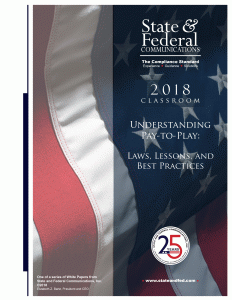 State and Federal Communications has prepared a new white paper with a comprehensive examination of pay-to-play laws and the characteristics of an effective pay-to-play compliance program.
State and Federal Communications has prepared a new white paper with a comprehensive examination of pay-to-play laws and the characteristics of an effective pay-to-play compliance program.
This white paper is useful for politically active business entities who have, or are seeking, to obtain government contracts amid the complex regulatory scheme of pay-to-play laws.
A strong pay-to-play compliance program can mitigate your risks and facilitate a smooth procurement experience that stays within the boundaries of all regulations.
Have you ever asked:
- Is quid pro quo considered bribery in exchange for a specific contract?
- To whom may we contribute?
- What should we be aware of while negotiating a contract?
This white paper includes:
- Pay-to-play categorization: focus on restriction, disqualification, or disclosure
- How and why to implement best practices for making contributions
- Recent trends in ethical business contributions and procurement laws
If you are attempting to obtain a local or state contract, this free white paper is a must-read.
Click here for downloading instructions – and ensure you and your team can say “I Comply!”
July 2, 2018 •
Fort Wayne Passes Another Pay-to-Play Ordinance
The Fort Wayne City Council passed another bill related to pay-to-play practices. Similar to last year’s pay-to-play ordinance, the City Council overrode Mayor Tom Henry’s veto in a 7-2 vote. The newly passed measure, prohibits business entities, with any officer, […]
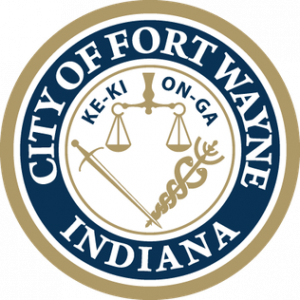 The Fort Wayne City Council passed another bill related to pay-to-play practices.
The Fort Wayne City Council passed another bill related to pay-to-play practices.
Similar to last year’s pay-to-play ordinance, the City Council overrode Mayor Tom Henry’s veto in a 7-2 vote.
The newly passed measure, prohibits business entities, with any officer, partner, or principal with more than 10 percent ownership who have donated more than $2,000 to a campaign of someone with ultimate responsibility for awarding city contracts, from bidding on city contracts.
The San Francisco, California Board of Supervisors unanimously passed, on first reading, campaign finance reform legislation aimed at providing more transparency in political contributions. Among other provisions, the legislation will include pay-to-play provisions, local behested payment reporting requirements for both […]
 The San Francisco, California Board of Supervisors unanimously passed, on first reading, campaign finance reform legislation aimed at providing more transparency in political contributions.
The San Francisco, California Board of Supervisors unanimously passed, on first reading, campaign finance reform legislation aimed at providing more transparency in political contributions.
Among other provisions, the legislation will include pay-to-play provisions, local behested payment reporting requirements for both donors and City officers, and additional disclosure requirements for contributions made by business entities.
The legislation must pass a second reading at the Board of Supervisors and be signed by the mayor prior to becoming law.
March 15, 2018 •
Circuit Court Upholds Cook County Pay-to-play Restrictions
The Cook County Circuit Court upheld county pay-to-play limits on Tuesday, ruling against County Assessor Joseph Berrios. Berrios challenged the county’s campaign contribution limits for those who have sought official action from the county as unconstitutional. He also argued only […]
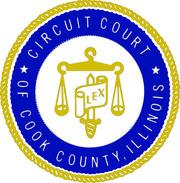 The Cook County Circuit Court upheld county pay-to-play limits on Tuesday, ruling against County Assessor Joseph Berrios.
The Cook County Circuit Court upheld county pay-to-play limits on Tuesday, ruling against County Assessor Joseph Berrios.
Berrios challenged the county’s campaign contribution limits for those who have sought official action from the county as unconstitutional. He also argued only the state Legislature has the authority to set contribution limits; Judge Sanjay Tailor disagreed.
Local governments are permitted to enact laws governing campaign finance, provided they do not interfere with voter registration and election mechanics.
Berrios is expected to appeal.
March 13, 2018 •
Pennsylvania Governor Introduces Ethics Reform Plan
Pennsylvania Governor Tom Wolf announced his Citizen First ethics reform plan this week. Gov. Wolf, who took office in 2015, has been a proponent of broad ethics and government reform. The Citizens First ethics reform plan includes a gift ban […]
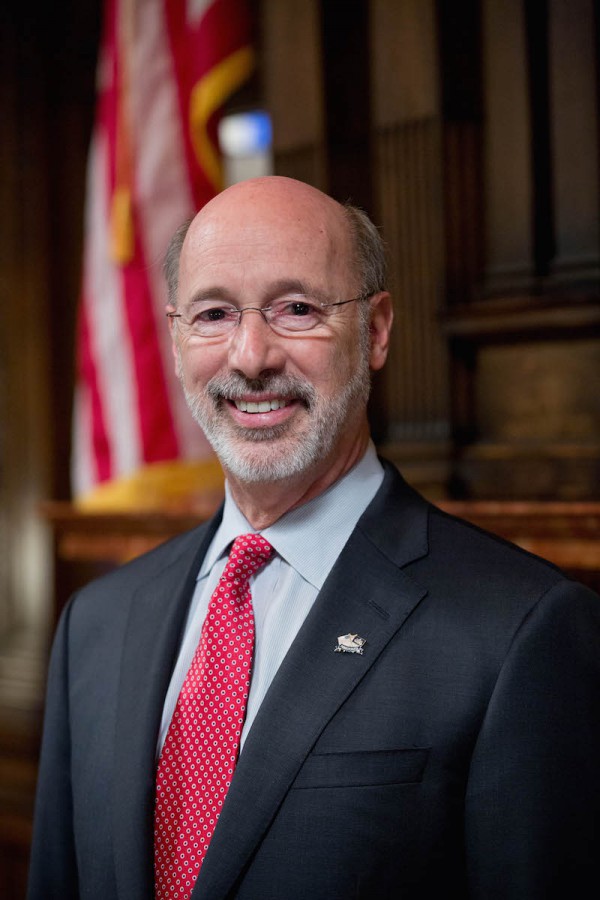 Pennsylvania Governor Tom Wolf announced his Citizen First ethics reform plan this week. Gov. Wolf, who took office in 2015, has been a proponent of broad ethics and government reform.
Pennsylvania Governor Tom Wolf announced his Citizen First ethics reform plan this week. Gov. Wolf, who took office in 2015, has been a proponent of broad ethics and government reform.
The Citizens First ethics reform plan includes a gift ban for all public officials. Gov. Wolf already banned members of his administration from accepting gifts but is seeking a broader permanent ban to stop politicians from accepting unlimited gifts.
Along with a gift ban, the plan includes campaign finance reform creating contribution limits, restriction on political action committees, and heightened reporting requirements.
The proposed campaign finance reform would also include pay-to-play provisions requiring the disclosure of campaign contributions made by entities seeking contracts with the state.
March 9, 2018 •
New York Assembly Introduces Pay-To-Play Bill
On March 2, 2018, Assembly Bill 9968 was introduced by Assemb. Sandy Galef. The bill prohibits business entities with state contracts of more than $15,000 from making monetary, in-kind contributions, or a pledge of contribution in excess of $1,000 to […]
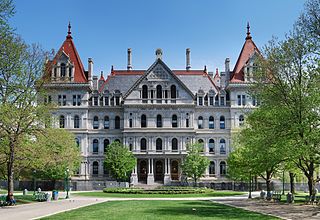 On March 2, 2018, Assembly Bill 9968 was introduced by Assemb. Sandy Galef.
On March 2, 2018, Assembly Bill 9968 was introduced by Assemb. Sandy Galef.
The bill prohibits business entities with state contracts of more than $15,000 from making monetary, in-kind contributions, or a pledge of contribution in excess of $1,000 to an individual who holds a position of an elected state public office, a candidate for an elected state public office, or a state, county, or municipal political party, if the contract will be voted on or approved by such an individual.
The prohibition is for the preceding 12-month period before a contract is awarded. If passed, the bill will become effective 90 days after becoming law.
March 1, 2018 •
Candidate Asking Court to Void Cook County Pay-to-Play Limits
Cook County Assessor Joe Berrios is asking Circuit Court Judge Sanjay Tailor to void the county’s pay-to-play provisions. Current ethics rules limit campaign contributions from those who seek official action from the county. Berrios argues only the state has the […]
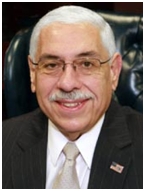 Cook County Assessor Joe Berrios is asking Circuit Court Judge Sanjay Tailor to void the county’s pay-to-play provisions. Current ethics rules limit campaign contributions from those who seek official action from the county.
Cook County Assessor Joe Berrios is asking Circuit Court Judge Sanjay Tailor to void the county’s pay-to-play provisions. Current ethics rules limit campaign contributions from those who seek official action from the county.
Berrios argues only the state has the authority to limit campaign contributions, while the county maintains it is permitted to set more-restrictive limits to avoid impropriety.
Berrios was fined $41,000 in January (after receiving warnings from the Board of Ethics last summer) for taking 41 contributions exceeding pay-to-play limits from property tax appeal lawyers affected by the decisions of his office.
As he waits for a court ruling, Berrios continues to accept contributions exceeding county limits.
Pictured: Cook County Assessor Joe Berrios
With a 6-1 vote, Spokane, Washington City Council overrode Mayor David Condon’s veto of a campaign finance reform ordinance. The new ordinance will cut in half the maximum allowable donation to candidates, from $1,000 to $500. Additional changes include a […]
 With a 6-1 vote, Spokane, Washington City Council overrode Mayor David Condon’s veto of a campaign finance reform ordinance.
With a 6-1 vote, Spokane, Washington City Council overrode Mayor David Condon’s veto of a campaign finance reform ordinance.
The new ordinance will cut in half the maximum allowable donation to candidates, from $1,000 to $500.
Additional changes include a pay-to-play provision to prohibit contributions from contractors, a restriction on when contributions may be received, and a requirement to disclose a committee’s top donors.
January 8, 2018 •
Washington D.C. Council Considering New Campaign Finance Rules
Washington D.C. City Council is reviewing four bills that would impose new regulations and restrictions on political contributions. Three bills under review would add various pay-to-play provisions. A fourth, which will be voted on by City Council on January 9, […]
 Washington D.C. City Council is reviewing four bills that would impose new regulations and restrictions on political contributions.
Washington D.C. City Council is reviewing four bills that would impose new regulations and restrictions on political contributions.
Three bills under review would add various pay-to-play provisions. A fourth, which will be voted on by City Council on January 9, would institute public campaign financing for local elections.
The legislation, however, is not without its opponents.
Mayor Muriel Bowser announced she would not fund a public financing program. The public finance program, if passed by the Council, would not be in place until 2020.
Council Member David Grosso said if Bowser does not choose to fund the bill in her budget, the council can allocate money for the program.
December 15, 2017 •
NYCU Video Digest – December 15, 2017
Lobbying, Pay-to-Play and Special Elections in this weeks news you can use video digest!
Lobbying, Pay-to-Play and Special Elections in this weeks news you can use video digest!
December 13, 2017 •
Fort Wayne City Council Overrides Veto of Pay-to-Play Ordinance
The Fort Wayne City Council overrode Mayor Tom Henry’s veto of pay-to-play ordinance. Opponents of the ordinance are concerned about the constitutionality of the new law. The ordinance will prohibit contractors who have donated more than $2,000 a year to […]
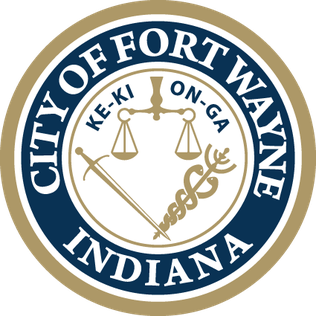 The Fort Wayne City Council overrode Mayor Tom Henry’s veto of pay-to-play ordinance. Opponents of the ordinance are concerned about the constitutionality of the new law.
The Fort Wayne City Council overrode Mayor Tom Henry’s veto of pay-to-play ordinance. Opponents of the ordinance are concerned about the constitutionality of the new law.
The ordinance will prohibit contractors who have donated more than $2,000 a year to an elected official’s campaign from bidding on city projects.
The restriction includes natural or legal persons with a 7.5 percent or more interest in the bidding entity and extends to a bidder’s spouse and any children living in the same household.
The ordinance will become effective on January 1, 2018.
November 29, 2017 •
Fort Wayne City Council Approves Pay-to-Play Ordinance
The Fort Wayne City Council approved a pay-to-play ordinance on November 28. The ordinance will prohibit contractors who have donated more than $2,000 a year to an elected official’s campaign from bidding on city projects. The restriction includes natural or […]
 The Fort Wayne City Council approved a pay-to-play ordinance on November 28. The ordinance will prohibit contractors who have donated more than $2,000 a year to an elected official’s campaign from bidding on city projects.
The Fort Wayne City Council approved a pay-to-play ordinance on November 28. The ordinance will prohibit contractors who have donated more than $2,000 a year to an elected official’s campaign from bidding on city projects.
The restriction includes natural or legal persons with a 7.5 percent or more interest in the bidding entity and extends to a bidder’s spouse and any children living in the same household.
Mayor Tom Henry has 10 days to sign or veto the legislation.
If approved, the ordinance will become effective on January 1, 2018.
November 29, 2017 •
Fort Wayne City Council Approves Pay-to-Play Ordinance
The Fort Wayne City Council approved a pay-to-play ordinance on November 28. The ordinance will prohibit contractors who have donated more than $2,000 a year to an elected official’s campaign from bidding on city projects. The restriction includes natural or […]
 The Fort Wayne City Council approved a pay-to-play ordinance on November 28. The ordinance will prohibit contractors who have donated more than $2,000 a year to an elected official’s campaign from bidding on city projects.
The Fort Wayne City Council approved a pay-to-play ordinance on November 28. The ordinance will prohibit contractors who have donated more than $2,000 a year to an elected official’s campaign from bidding on city projects.
The restriction includes natural or legal persons with a 7.5 percent or more interest in the bidding entity and extends to a bidder’s spouse and any children living in the same household.
Mayor Tom Henry has 10 days to sign or veto the legislation.
If approved, the ordinance will become effective on January 1, 2018.
November 8, 2017 •
FINRA CAB Pay-to-Play Rules Effective December 6
On December 6, capital acquisition brokers (CAB) will become covered by the same pay-to-play rules the Financial Industry Regulatory Authority (FINRA) imposes upon broker-dealers, placement agents, and covered associates. Earlier this year, on August 20, FINRA implemented Rule 2030, a […]
 On December 6, capital acquisition brokers (CAB) will become covered by the same pay-to-play rules the Financial Industry Regulatory Authority (FINRA) imposes upon broker-dealers, placement agents, and covered associates.
On December 6, capital acquisition brokers (CAB) will become covered by the same pay-to-play rules the Financial Industry Regulatory Authority (FINRA) imposes upon broker-dealers, placement agents, and covered associates.
Earlier this year, on August 20, FINRA implemented Rule 2030, a new pay-to-play rule for broker-dealers, placement agents, and covered associates acting on behalf of certain regulated investment advisors or soliciting a government entity to invest in certain pooled investment vehicles. FINRA Rule 4580, which took effect the same day, mandates certain record-keeping requirements concerning any related contributions.
Starting in December, a firm meeting the statutory definition of a CAB and electing to be governed by the FINRA rule set would be subject to FINRA’s new pay-to-play rules. Specifically, FINRA’s CAB Rule 203 (Engaging in Distribution and Solicitation Activities with Government Entities) and CAB Rule 458 (Books and Records Requirements for Government Distribution and Solicitation Activities) require CABs be subject to FINRA’s pay-to-play Rules 2030 and 4580.
The new rules are meant to deter CABs from engaging in pay-to-play practices, according to FINRA Regulatory Notice 17-37.
State and Federal Communications, Inc. provides research and consulting services for government relations professionals on lobbying laws, procurement lobbying laws, political contribution laws in the United States and Canada. Learn more by visiting stateandfed.com.

